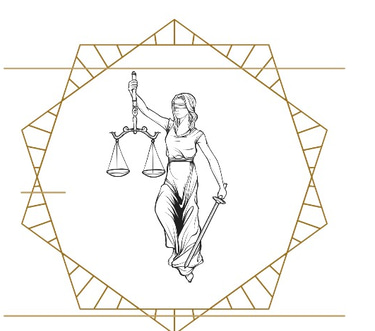Red Corner Notice India: Legal Guide to Challenge, Consequences, Remedies & Cancellation
Learn how to check, challenge, cancellation and removal of Red Corner Notice in India. Explore Supreme Court remedies, Interpol rules, and step-by-step legal strategies. ⚖️
Harshit R. Gupta
5/23/20254 min read


Demystifying the Red Corner Notice (RCN) in India
Earlier, a Red Corner Notice (RCN) was issued against fugitive criminals, but now the practice of issuing the notice appears in matrimonial proceedings too, in cases generally where one party is a citizen of another country.
In this article, I am dealing with the following aspects of RCN and will discuss how one should deal with such notice if issued against them.
1. Meaning and object
2. Its Consequence
3. Competent Authorities who are authorized to issue such notice
4. Circumstances under which it can be issued
5. Ground upon which it can be challenged/ withdrawn
6. Available Remedies
What is a Red Corner Notice? Meaning & Purpose
The term is defined by Interpol as a request by one country (on whose request RCN issued) to other member countries to trace the person within their country, against whom the notice is issued and detain him temporarily. It expires after five years unless renewed.
The solemn purpose of RCN is to extradite the fugitive to prosecute or punish the offence alleged proved. In essence, it is the tool in the hands of investigating authorities to deal with the people who, after committing the crime, abscond from one country to another.
Consequences of a Red Corner Notice in India
RCN should not be treated as a ground for arrest rather it should have the following consequences as discussed by Hon’ble Supreme Court in the case of Bhavesh Jayanti Lakhani vs. State of Maharastra, 2009 SCC OnLine SC:
1. That the requesting country may make a deportation request.
2. That law enforcement agency is required to take follow-up action with regard to arrest of fugitive criminal.
3. That the information emanating from RCN is required to be distributed on the Interpol website.
4. That requesting country can give instructions to the concerned investigating authority regarding surveillance, arrest, and detention.
5. That on RCN detention is provisional or finally to arrest the wanted person to extradition in the light of extradition law for the time being in force.
Who Issues a Red Corner Notice? Competent Authorities
As per Article 10.5 of Rules Governing the Processing and Communication of Police Information (RPI) of Interpol General Secretariat is the competent authority to issue RCN. It can be issued on application of any authorised entity or on its own.
On the request of National Control Bureau’s (NCB), the General Secretariat before issuing the RCN must satisfy two essentials:
a. Whether the RCN is necessary to be issued?
b. Whether such issuance serves the purpose of the Interpol?
In India, Central Bureau of Investigation functions as NCB and is the competent authority to request Interpol to issue RCN against fugitive or wanted criminal for the purpose of extradition
Circumstances under which RCN can be Issued
Since RCN is a powerful tool lies with the investigating authorities which affects the right of personal liberty of an individual against whom it was issued, it must be exercised sparingly and cautiously.
Generally, RCN is issued for tracing and extraditing the person who is accused or found guilty of serious ordinary offences such as murder, white-collar crimes (financially motivated crimes), terrorism, rape, fraud etc. However, the Article 83 of Interpol Rules provides the principles that must be considered the question whether RCN should be issues for the offence.
They may not be issued in family/ private matters, offences with respect to violation of cultural or behavioural norms as provided by the provision. The provision enumerates the non-exhaustive list of offences where RCN may not be issued.
How to Check if a Red Corner Notice is Issued Against You
Control of Interpol’s files contains the data of the person against whom RCN issued, so one access its site to know whether RCN is issued against him or not.
Secondly, one can also access the investigating authorities’ website to know that whether RCN is issued against him.
Legal Grounds to Challenge a Red Corner Notice
1. There exists a political motive.
2. Evidence produced with the request is not sufficient or fabricated.
3. It would lead to double jeopardy, if notice accepted or executed.
4. It breaches the settled rules contained in the charter of Interpol.
5. The offence in respect of which RCN issued is not a serious ordinary offense rather it falls within the list of offences against which RCN cannot be issued as provided under Article 83 of Interpol rules.
6. It infringes fundamental rights of an individual.
7. It breaches the principle of duality (the act or omission of fugitive is considered as an offence in both the countries i.e. country that made request and the country which has traced and provisionally arrested the person).
Available Remedies
Aggrieved can make an appeal to the Commission for the Control of Interpol’s Files (CCF) wherein he is required to challenge the notice on the settled grounds as discussed above.
In context India, he can also seek the withdrawal of the RCN from the Constitutional Court.
In the Bhavesh Jayanti Lakhan case the Hon’ble Supreme Court held that superior courts could enquire the manner in which RCN was issued or whether the local police is threatening an Indian citizen with arrest as they can only make arrest in the light of Extradition Act, 1962.
To conclude, based on RCN a fugitive is located and thereafter the law enforcement agency is required to send a request to the member country within whose territories fugitive is located for making a provisional arrest till the extraditing proceedings are conducted. The provisional arrest must be in compliance of municipal law of the member country and the detenu had all rights which such law confers on arrest to any other accused in its territory. He is within very much in his rights to take the contention that RCN is not valid or should not be infringed against him on the basis of above discussed grounds. Also, he can file a writ petition under Article 226 of the Constitution of India to challenge his arrest, RCN, and extradition as his fundamental rights are directly affected.
